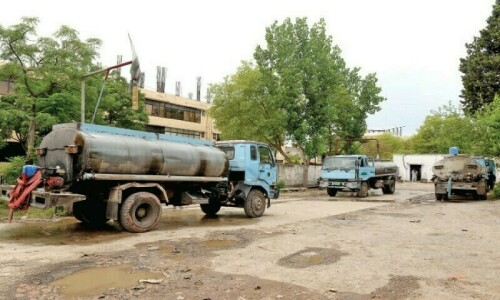BEIJING, May 28: Beijing has learnt from the SARS epidemic and there will be no attempt to hide any outbreak of infectious disease during the Beijing Olympics, the city’s chief medical officer said on Wednesday.
The Chinese capital’s 160,000 medical workers will all be trained to handle medical emergencies — including bio-terrorist attacks — and many had already proved their worth in relief work after the Sichuan earthquake, Jin Dapeng told a news conference.
But the lessons of the SARS outbreak in the city in 2003, which was initially covered up by officials, meant there would be no attempt to hide any epidemics.
“Information is life,” Jin, Communist Party secretary at the Beijing health bureau told a news conference.
“The prevention of SARS has left us eternally aware of how to deal with outbreaks of infectious diseases. Always put the health of the people first.
“We have reviewed our laws to ensure the openness of information. To be open, fair and transparent is the duty of the government.”
Jin said he worked as a young doctor on the relief effort after the 1976 Tangshan earthquake, which claimed as many as 300,000 lives but was kept largely hidden from the wider world.
He said the open attitude in the wake of the May 12 Sichuan earthquake, which is already known to have killed more than 68,000 people, showed how much had changed in China.
The Beijing medical workers sent to assist in the relief operation had been able to put to use some of the training they had received in preparation for the Olympics, which boosted Jin’s belief that they would be able to cope with almost anything during the Aug 8-24 Games.
“I became confident when I saw the excellent work of the Beijing health workers in the earthquake zone,” he said. “They are the pride of the capital.”
Jin, who is also head of the Beijing Olympic organising committee’s medical support group, said 3,223 medical workers would be dedicated to the Games, working in hospitals, clinics, 156 first aid stations and 191 ambulances.
Experts from the US had helped with citywide preparations against the threat of terrorist attacks, including the release of black plague and the anthrax virus.
“After the 9/11 attacks in the US, there were anthrax attacks there and that attracted our great attention to the problem of bio-terror,” he said.
“All the 160,000 medical staff will receive the training for those extreme circumstances, we are fully prepared.”
Despite his confidence, Jin said there was no complacency among his team.
“We must recognise that the future path will be hard, we must be ready for all kinds of difficulties, risks and potential threats both man-made or natural,” he concluded.—Reuters














































Dear visitor, the comments section is undergoing an overhaul and will return soon.